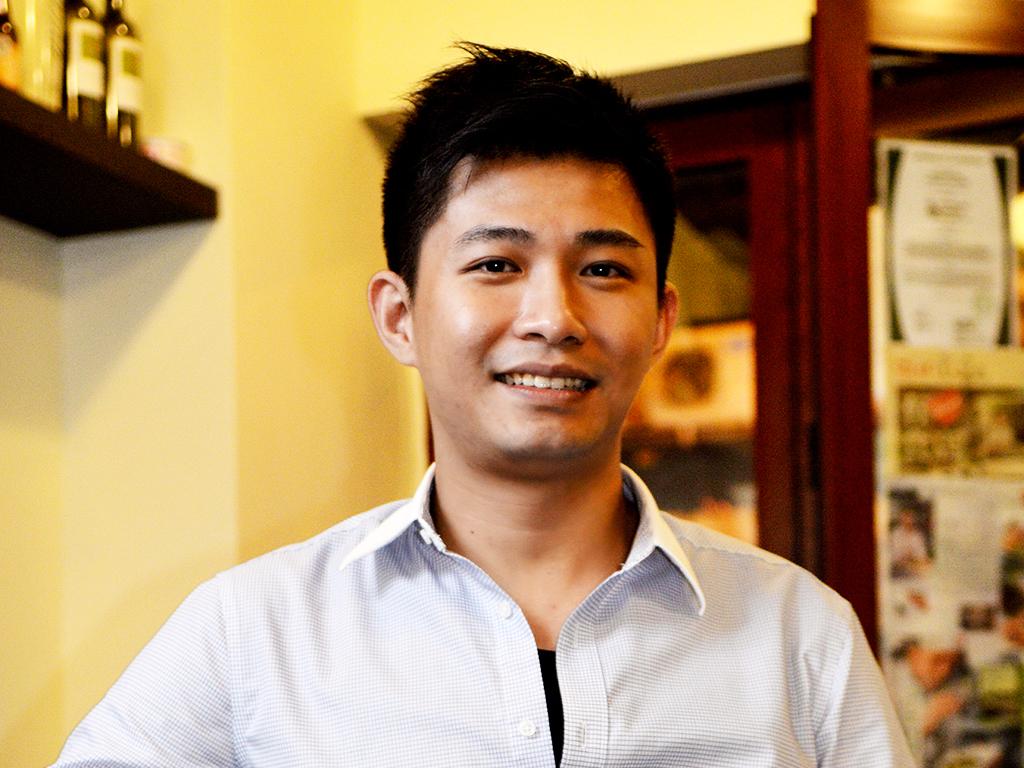Q&A With Andy Kun, HK’s Gluten-Free Guru & Founder Of Urban Health – Part 1: Definitions, Celiac & Why Wheat’s A No-No
4 Mins Read
Andy Kun is the CEO and Co-Founder of Urban Health Group Limited, a company dedicated to promoting a gluten-free lifestyle in Asia, which includes a gluten-free lifestyle Facebook support group Gluten Free in Hong Kong. They are the first in Hong Kong to provide gluten-free restaurant and factory consultation services, making use of Glutentox detection test kits for chefs and quality control officers, which offer a fast and accurate method to test gluten levels in food, drinks and surface areas to as low as 5 parts per million (5PPM), which is the strictest industry standard. Andy is also the culinary talent Urban Health Pop-up Kitchen, the city’s first allergy-free private dining experience. Urban Health hosts many allergy-friendly dining events, cooking workshops and offers private chef catering services. We talk to him about all things gluten-free including the difference between celiac and gluten-free, where to eat out gluten-free style, whether being gluten-free is healthy and the trouble with wheat. Part 1 is below, stay tuned for Part 2 next week!
What does being gluten-free mean?
Good question! Following a strict gluten-free diet means never cheating and staying away from any foods or drinks that contain gluten, a mixture of two proteins found in many cereals. The list includes wheat, barley, rye and, in most cases, oats. Oats alone do not contain the protein that is harmful to celiacs and the gluten-intolerant, however oats are often farmed close to wheat fields and/or processed in the same factory as other gluten-containing grains. Practically speaking this means most baked goods, breads and pasta dishes are out…
Making the switch to a gluten-free lifestyle is not exactly a smooth ride. Transitioning from being able to eat just about everything and to be able to eat out with family and friends no matter what the restaurant to becoming the “fussy” eater in the group can be stressful for sufferers. There is also a lack of understanding of the condition, with many people misunderstanding it to be a weight loss experiment. The truth is though that certain parts of the population literally cannot process gluten and removing it from their diet is the only way for them to live a healthy life.
What’s the difference between gluten-free and celiac?
Celiac (also spelled coeliac) is a serious inherited auto-immune disease whereby the body’s immune system attacks itself when gluten is ingested. These attacks cause severe damage to the lining of the gut and as a result, the body is unable to properly absorb nutrients from food. Gluten intolerance or the newer industry insider term non-celiac gluten sensitivity, refers to individuals who are unable to tolerate gluten and may experience similar symptoms to those with celiac disease but without the intestinal tissue damage.
Is following a gluten-free diet healthier than consuming gluten?
This is a controversial topic these days! Being on a strict gluten-free it is the only treatment for those afflicted with celiac’s so for some there is no choice. That being said, certain people who follow gluten-free diets are making use of mass produced gluten-free foods that contain too many refined sugars and other preservatives. If you are not careful, a gluten-free lifestyle can just as unhealthy as a non gluten-free lifestyle. Eating fresh, natural foods and cutting down/avoiding processed food is one of the key factors when it comes to good health- gluten-free or not.
Should we all be gluten-free?
Whilst for some, a gluten-free lifestyle is not a choice but a medical necessity, many doctors and nutrition experts do believe that minimize our intake of wheat in general can be a good thing. Over the past few decades, in order to increase crop yield and shelf life, a protein called gliadin has been added to wheat grains in the US. Many experts now believe that the addition of gliadin is what is responsible for increased gluten and wheat sensitivity. There are also studies that show that those who are gluten-intolerant are able to digest European wheat products (where gliadin was never added) or wild wheat species without exhibiting any allergic symptoms.
For the more scientific-minded amongst us, here is more in depth explanation. According to Dr. Alessio Fasano, the Medical Director for the University of Maryland’s Center for Celiac Research, gliadin is a strange protein that our enzymes cannot break down from amino acids into elements small enough for us to digest. Our enzymes can only break down the gliadin into peptides that are too large to be absorbed properly through our small intestine. Our intestinal walls have to separate in order to let the larger peptide through. If our intestinal walls stay open for too long, our immune system sees them as “enemies” and start to “defend” the body. The instance of allergic reaction depends on whether our intestinal walls close back up after letting the larger peptide through.
Dr. William Davis, author of New York Times bestseller Wheat Belly, has an even more worrying stance. He suggests that gliadin is a highly addictive substance, inducing a high similar to that caused by heroin and morphine; this high makes us hungry and makes us want to eat more (worrying global obesity rates, anyone?). There are also many studies and a great deal of research with evidence to suggest that excessive wheat consumption may be the root causes of many neurological and psychiatric conditions that are becoming more prevalent today.
Photo Credits: Andy Kun, Allergy Free From Expo and Image from page 498 of “American cookery” (1914) via photopin (license).






